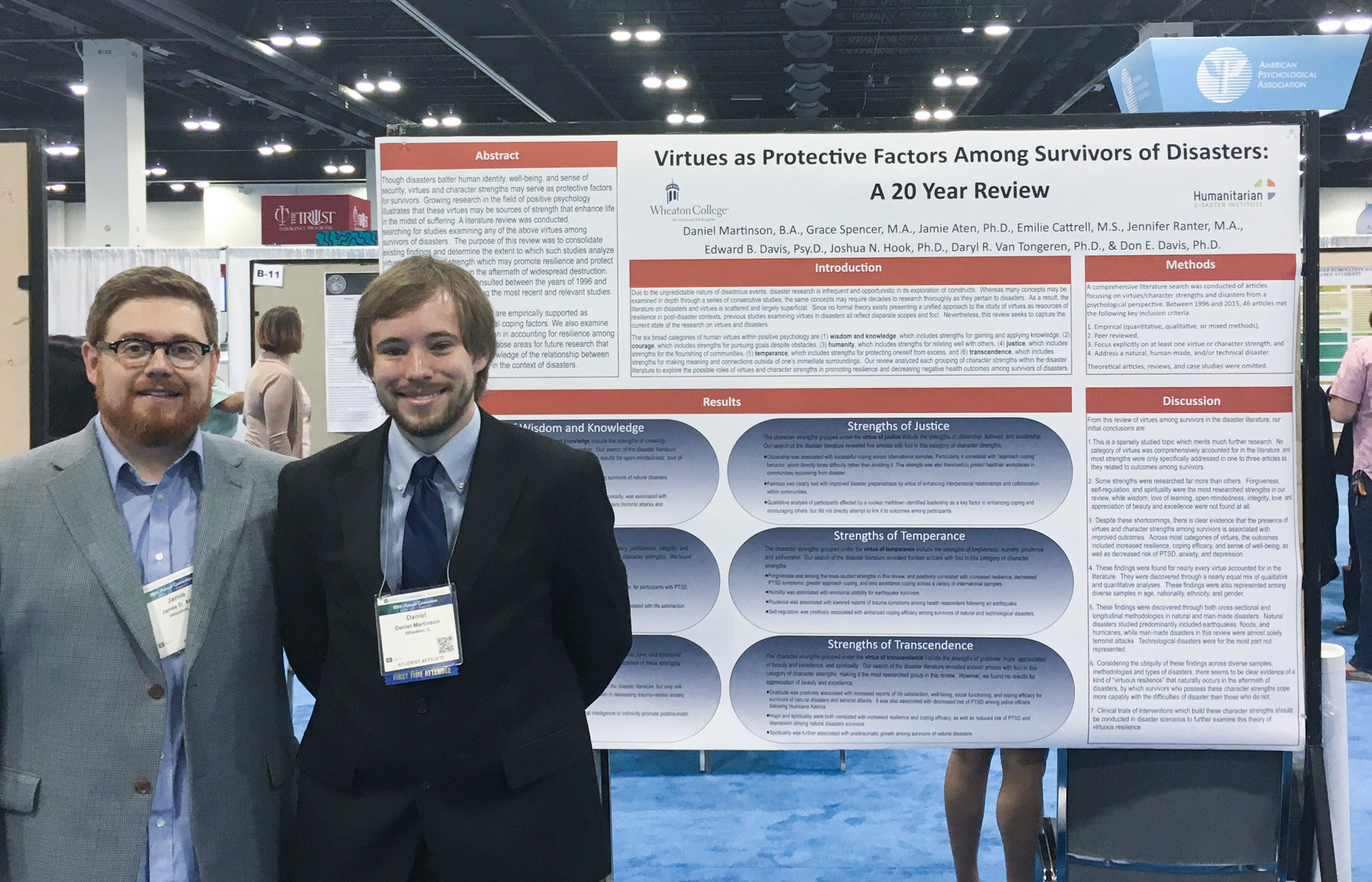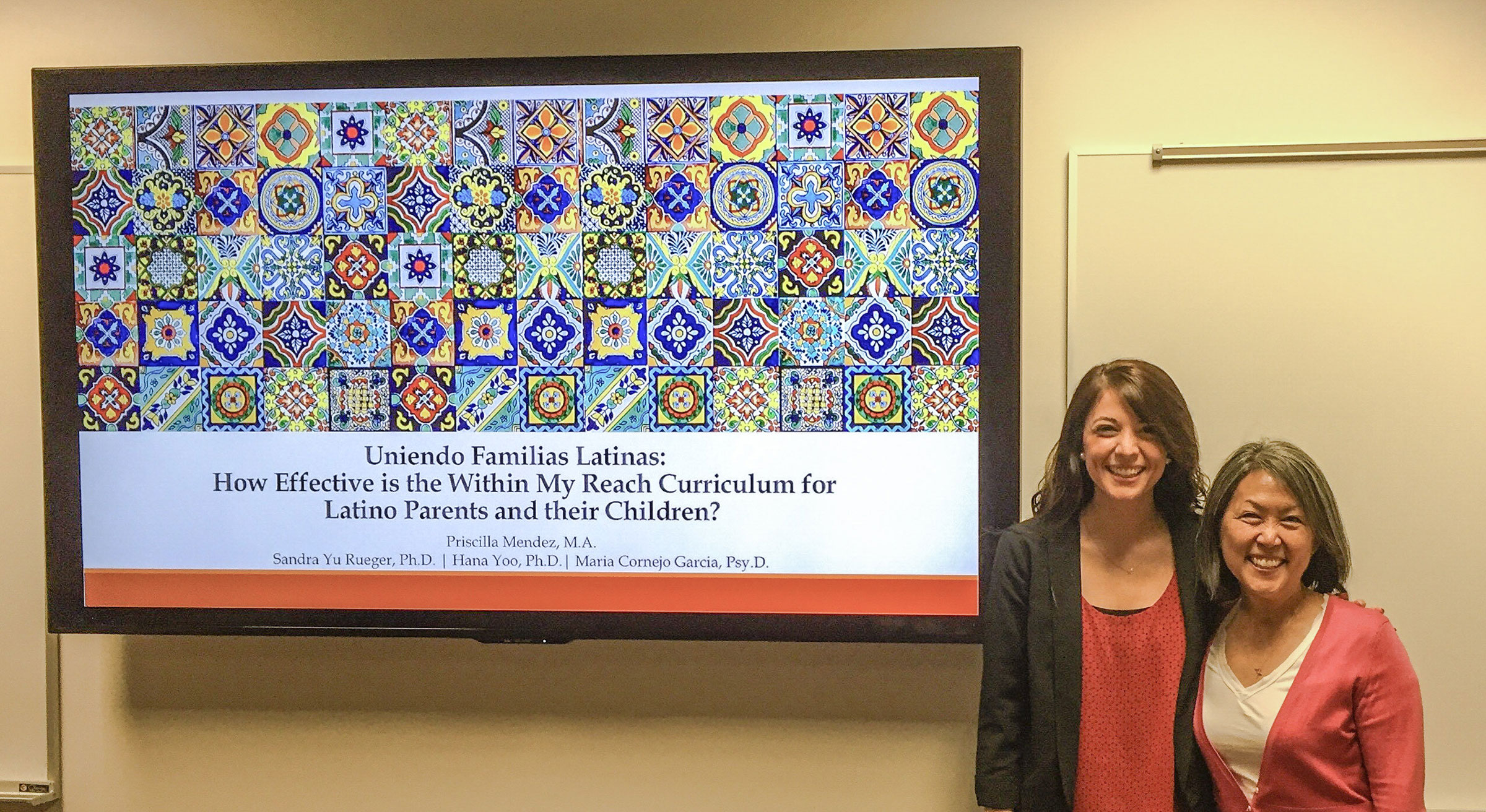Dissertations
Clinical Dissertation Development

Why a Clinical Dissertation?
One of the hallmarks of a doctorate degree in clinical psychology is a student’s contribution to scholarly literature in the field. Our program is committed to producing highly competent clinical psychologists who will be practitioner-scholars, capable of benefiting from and contributing to both the theoretical and applied empirical scholarly literature of the clinical psychology field, adept at advancing our understanding of the interface of psychological and spiritual understandings of the person, and competent to intervene to enhance human welfare. The Wheaton College Psy.D. program shares in this long-standing doctoral academic tradition with the clinical dissertation serving as a program capstone.
Competencies Demonstrated
Students who successfully complete the clinical dissertation will have demonstrated the following competency-based goals and objectives of the program:
- Integrity and Professional Comportment – We expect our students will display behavior and comportment that reflects integrity, responsibility and the values of psychology contributing to professional identity as a clinical psychologist.
- Scholarship – We expect our students will demonstrate ability to effectively engage in and critique scholarship that contributes to psychological knowledge and clinical practice.
Faculty Mentorship
Students work closely with program faculty, and the student’s dissertation supervisor advises the student in the dissertation process. Faculty, through a process of collaborative discussions initiated by the student, decide to chair a dissertation and work with the student to identify two additional committee member by early in the student’s third year. Students regularly work closely with their dissertation supervisor throughout the remainder of their time in the program, and the relationship often lasts a lifetime.
Dissertation Criteria
Every clinical dissertation must meet the following criteria:
- Originality: the dissertation must embody original thinking or analysis
- Meaningfulness: the contribution should advance the field of psychology
- Quality: the dissertation should be of high quality
Two major models meet these guidelines: empirical studies and conceptual or theoretical approaches. Empirical studies are by far the most common type of clinical dissertation in the Wheaton Psy.D. Program and will either utilize quantitative or qualitative methodologies.
A Snapshot of the Process

Students begin the dissertation process on the day they begin the program by joining a Research Lab. Throughout their time in the program, students routinely present research done in labs at national conferences such as American Psychological Association, American Academy of Clinical Neuropsychology, and Christian Association for Psychological Studies. The program grants support to cover conference registration, travel and poster production costs (up to $650/year) for students presenting at conferences. The vast majority of dissertations are products of research supported by one of the faculty research labs. Therefore, it is essential to appropriate student mentoring that the student be willing to work within the realm of current Psychology, Counseling, and Family Therapy faculty research interests. Students interested in applying to the program are encouraged to communicate with faculty whom they share research interests.
Students take courses in research design and statistics during their second year in the program that strengthens scholarship skills and is necessary for the work of developing a dissertation proposal in the coming year.
Dissertation proposals (i.e., introduction, literature review, purpose of study including the research question(s), method, participants, measures, procedure and data analysis plan) are defended before the dissertation committee by the end of the student’s third year in the program.
Institutional Review Board approval for research on human subjects and data collection is typically achieved during the student’s fourth year. The program has limited dissertation grant funding available to students at this stage in the process.

Writing the clinical dissertation manuscript and the defense of that manuscript typically is done during the student’s final year in the program. A dissertation is not complete until UMI and Wheaton College Library accept it for publication.
Further details about the process are reviewable in the Wheaton College Psy.D. Clinical Dissertation Manual (PDF).

Andrew Cuthbert Psy.D. ’18 writes about how Wheaton College Graduate School faculty and students have encouraged him in his humility intervention research both on and off campus.
